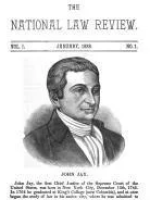Over the last year and a half, government lawyers in all fields faced a variety of unprecedented changes and challenges. Remote work is increasingly common, workloads are fluctuating wildly and virtual lawsuits and hybrid trials are a mainstay at every level. The emergence of COVID-19 completely re-oriented the legal profession, and the future direction of the industry remains uncertain.
In addition to those challenges, government lawyers in particular face a unique set of challenges. This includes, but is not limited to, limited personnel and resources, frozen budgets and the increasing amount of litigation related to the coronavirus. The need for innovative and practical solutions is growing as the legal profession adapts to a new normal.
Recently, the National Law Review sat down to discuss these hardships, as well as some potential solutions, with Zach Ratzman, a Director of Product Management for Thomson Reuters Practical Law. Prior to joining Practical Law, Mr. Ratzman was a lawyer for the U.S. Department of Homeland Security in Washington, D.C., and previously practiced in commercial litigation and securities fraud at several large New York City law firms.
Read on for our discussion with Mr. Ratzman on the challenges facing government lawyers, and how he’s seen Practical Law used to improve workflow and productivity.
NLR: What are the various challenges that government lawyers are facing right now?
ZR: I think one of the things that always keeps every lawyer up at night – whether a government lawyer or someone in private practice – is the fear of missing a change in the law or relying on bad precedent, whether it's in a court brief or any other legal document. The law is always changing, so what you know right now may not be true next week, or tomorrow, or even this afternoon. Being a lawyer is hard enough with tight deadlines and heavy workloads, but then throw in the fact that the rules of the game are constantly changing and the end result can be a pretty tough and stressful job.
Speaking of workloads, lawyers in every industry tend be overworked. But for government lawyers, that problem is often exacerbated by limited resources, static or shrinking budgets – or at least uncertainty about the budget – and a notable loss of institutional knowledge via a wave of retirements taking place on all levels of government – from the Federal government down to cities and counties.
NLR: How has the emergence of COVID-19 affected government lawyers?
ZR: I think a big one is difficulty collaborating in the new remote environment. I joined the federal government as a seasoned lawyer who had been in private practice for about 10 years. But, mostly everything I saw as a Fed was really new to me. One thing that I think really helped me overcome that challenge was the ability to collaborate, or have what was then a literal walk-down-the-hall conversation with a colleague of mine who had been with the federal government for over 20 years.
For months, I was knocking on this guy's door a couple of times a week to ask about all the different matters landing on my desk, "hey, what do I need to know in handling this FOIA dispute?" or “what should I be looking out for in this contract?”
With COVID, that kind of in-person collaboration was wiped out, and now with the continued use of remote working, it’s still difficult to get that same mind-share because email and phone calls only get you so far.
I think another challenge from COVID is that government organizations everywhere have become even more mindful of their budgets. That’s probably always been true, but with the hits that government entities have taken to their revenue base – or, at a minimum, from the continued uncertainties surrounding budgets –that's going to create constraints for these organizations' ability to overcome a lot of their challenges.
NLR: What are the top concerns that Thomson Reuters’ government customers currently have?
ZR: I think a universal truth for government lawyers is not having the resources that other lawyers in the private sector usually have, especially as COVID hit. A lawyer in private practice typically has more resources at his or her disposal, whether it's paralegals or other support staff, money for trainings, etc. So, if you're a government lawyer or a government legal department that doesn't have those same capabilities, you're already starting out in a hole. When you throw in the heightened budget sensitivities, which can impact the ability to hire or train, and not having the same programs and systems in place that lawyers in other industries might have, it becomes a real challenge.
Another big one that separates government lawyers from most of their private-sector peers is you really can never say no to legal matters that come up. If you're a private practice lawyer and a case or a client comes to you that you don't want to take, or you're unable to take for whatever reason, you can always say no. But in government, the lawyers are there to serve the organization, the elected officials, other stakeholders and the public. In other words, it's your job to handle the legal issues that come up, regardless of complexity, regardless of difficulty, regardless of budget constraints. You just have to pull yourself up by your bootstraps and get it done.
And workloads are not decreasing. In fact, through surveys Thomson Reuters has done, government lawyers tell us just the opposite – that their workloads are increasing and they’re expecting that trend to continue. Again, a government lawyer or government legal department can't say, "We don't have the staff to handle this." You just have to figure it out. You have to get the work done, whether you're dealing with the same staff you had a year ago, or with even fewer lawyers than you had a year ago.
NLR : How can Practical Law help customers and government lawyers overcome these challenges?
ZR: Practical Law is what we refer to as legal “know-how,” and by that I mean nuts and bolts practice guidance and work product that's designed to help lawyers do more with less by getting them up to speed quickly and confidently, practicing more efficiently, and ultimately saving time and energy. Our content includes thoughtful, time-saving resources like gold-standard forms and templates for drafting, comprehensive checklists and flowcharts, and straightforward, plain-language, “brass tacks” practitioner tips and insights. And the content is written – and kept current – by a full-time editorial team of more than 300 seasoned experts who came to Practical Law with years of experience at leading law firms, corporate legal departments, and all levels of government.
The proof is in the pudding – I recently heard one of our customers describe Practical Law as a “digital force multiplier,” which I think really hits the nail on the head. This was a county attorney who was the lone lawyer responsible for handling all the legal needs of a good sized county in the Southeast. He said that having Practical Law is like having a few “extra associates” in the office to help him get things done, and so much so that he’s been able to save a ton of money he’d otherwise spend hiring outside counsel
It always strikes me as funny when people refer to Practical Law as a product. Yes, of course, it's a product, and is an indispensable companion to traditional legal research products like Westlaw. But what I think our customers really pay for is access to expertise. And that’s because a Practical Law subscription is like having on-demand access to a large, elite law firm that sits at the ready to help our subscribers more efficiently and confidently handle their legal work. In other words, a digital force multiplier.
Along those lines, and I alluded to this earlier, Practical Law’s special sauce really is that team of more than 300 full-time attorney editors who have, on average, around 14 years of practice experience – and many of them practiced for a lot longer So these aren't junior lawyers just doing research projects. And their job now is to draw on their years of practice experience and their own hardships to create time-saving resources that they wished they had had access to when they were handling something new or a difficult matter.
Think of it this way: Practical Law lets our customers have the equivalent of a walk-down-the-hall conversation with an expert whose practice guidance and insights help get them up to speed quickly and confidently. That is so much better and efficient than starting out with a pile of case law or trying to wade through a dense treatise or law review article.
NLR: What are some of the main benefits of Practical Law?
ZR: I’ve probably used these words already, but I really think it boils down to saving time and practicing more efficiently and confidently. Straightforward practice notes that explain unfamiliar and complex matters, clearly, from a practitioner’s perspective; forms and templates that have our team’s guidance and suggestions baked right into the documents; comprehensive checklists that can save your bacon when time is short. There are even downloadable PowerPoints for our subscribers to use for trainings or other presentations – those save our customers hours and hours of tedious work.
I touched on this earlier too, but our customers – especially local government lawyers and counsel for universities – tell us that subscribing to Practical Law actually helps them save money. One way is by hiring outside counsel on fewer matters, because our customers themselves are able to handle more matters with the help of Practical Law resources. Another legitimate cost savings comes from spending less on training – why spend money on outside trainings or legal-practice seminars when you can point your lawyers to Practical Law’s up-to-date how-to guides and practice tips?
Click here to learn more about Thomson Reuters Practical Law.
Rachel Popa also contributed to this article.




 />i
/>i

